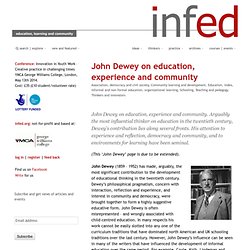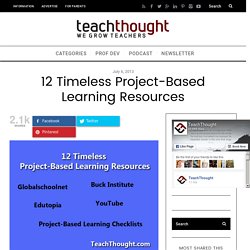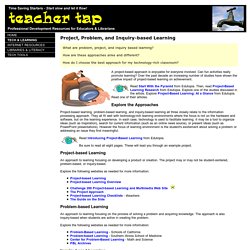

Project & Problem based Learning. Gold Standard PBL: Essential Project Design Elements. Adapted from Setting the Standard for Project Based Learning: A Proven Approach to Rigorous Classroom Instruction, by John Larmer, John Mergendoller, Suzie Boss (ASCD 2015).

This post is also available as a downloadable article. It’s encouraging that Project Based Learning is becoming popular, but popularity can bring problems. Here at the Buck Institute for Education, we’re concerned that the recent upsurge of interest in PBL will lead to wide variation in the quality of project design and classroom implementation. If done well, PBL yields great results. But if PBL is not done well, two problems are likely to arise.
To help teachers do PBL well, we created a comprehensive, research-based model for PBL – a “gold standard” to help teachers, schools, and organizations to measure, calibrate, and improve their practice. Student Learning Goals Student learning of academic content and skill development are at the center of any well-designed project. Teach Elements—Online Professional Development Courses. John Dewey on education, experience and community. (This ‘John Dewey’ page is due to be extended).

John Dewey (1859 – 1952) has made, arguably, the most significant contribution to the development of educational thinking in the twentieth century. Dewey’s philosophical pragmatism, concern with interaction, reflection and experience, and interest in community and democracy, were brought together to form a highly suggestive educative form. John Dewey is often misrepresented – and wrongly associated with child-centred education. In many respects his work cannot be easily slotted into any one of the curriculum traditions that have dominated north American and UK schooling traditions over the last century.
However, John Dewey’s influence can be seen in many of the writers that have influenced the development of informal education over the same period. John Dewey’s significance for informal educators lies in a number of areas. Key texts: There is rather a lot of material to choose from here. Project-based learning. Project-based learning (PBL) is considered an alternative to paper-based, rote memorization, teacher-led classrooms.

Proponents of project-based learning cite numerous benefits to the implementation of these strategies in the classroom including a greater depth of understanding of concepts, broader knowledge base, improved communication and interpersonal/social skills, enhanced leadership skills, increased creativity, and improved writing skills. John Dewey initially promoted the idea of "learning by doing. " John Dewey, 1902 Markham (2011) describes project-based learning (PBL) as: " PBL integrates knowing and doing. Students learn knowledge and elements of the core curriculum, but also apply what they know to solve authentic problems and produce results that matter. Project-based learning has been associated with the "situated learning" perspective of James G. Structure[edit] Elements[edit] 12 Timeless Project-Based Learning Resources. 12 Timeless Project-Based Learning Resources by Shannon Dauphin Project-based learning is becoming increasingly popular as teachers look for a way to make lessons stick in the minds of their students.

According to Edutopia, studies have shown that students who use project-based learning remember the material much longer and have healthier attitudes toward education. Project-based learning is based on the idea that students learn best by tackling and solving real world problems. Students are much more engaged with the subject matter and look to the teacher as more of a coach who guides them through their own reflections and ideas. Ready to try project-based learning in your classroom? 1. 2. 3. 4. 5. 6. 7. Project Based Learning. Project, Problem, and Inquiry-Based Learning. What are problem, project, and inquiry based learning?

How are these approaches alike and different? How do I choose the best approach for my technology-rich classroom? A project-based approach is enjoyable for everyone involved. Can fun activities really promote learning? Over the past decade an increasing number of studies have shown the positive impact of project-based learning on achievement. Read Start With the Pyramid from Edutopia. Explore the Approaches. What is PBL? ELLM2002.pdf. Educational Leadership:Giving Students Meaningful Work:Seven Essentials for Project-Based Learning.